
If you're like many people, you may be wondering how much CBD you should be taking. After all, cannabidiol (CBD) is a potent compound that has been shown to offer myriad health benefits, including relief from anxiety disorders, chronic pain, and more.
Cannabidiol has been making headlines recently thanks to its potential impact on health and well-being. CBD is one of over 100 compounds found in the cannabis plant. Unlike its more famous cousin, THC (tetrahydrocannabinol), CBD is non-intoxicating, meaning it won't make you feel "high."
CBD, a Cannabis Sativa constituent, is a non-psychoactive compound that comes in many shapes and forms, making it a versatile supplement. CBD can be found in various products, including oils, capsules, edibles, and topicals. You can even find CBD in dietary supplements and skincare products.
As a relatively new discovery, there's still some confusion over CBD safety and side effects. In this article, we'll go over everything you need to know about CBD dosage, including how much CBD you should take and how to find the right CBD product for you.
Every person is different, and the correct CBD dosage for one person may produce different effects for another. So - while there are some good general starting points that many will find useful - others will need to follow a more individualized plan to achieve their goals and minimise the chance of any potential side effects.
There's no single fixed-dose when it comes to CBD, no matter how you choose to take it. The ideal amount will vary from person to person.
The UK FSA stated in May 2020 that it recommends healthy adults do not take more than 70mg of CBD daily.
Fortunately, there's plenty of room for error when testing dosages and numerous studies have shown that even high levels of CBD are well tolerated - with some users observed taking 1500 mg of CBD daily without unwanted side effects.
Below are some of the factors that go into how much CBD you should take.
If you're starting with CBD for the first time, it's essential to understand that there's no one-size-fits-all dosage.
Several factors will affect how much CBD you should take, including your:
Let's take a look at each of these factors in turn.
Your height and body weight will play a significant role in CBD dosage.
CBD has a slower distribution rate throughout the body with more tissue present and thus a lower and slower absorption rate.
Tall or heavier individuals may need a more potent dose of CBD to feel the same effects as smaller individuals.
Body chemistry also plays a vital role in CBD absorption.
People with a naturally fast metabolism will absorb CBD more quickly, often resulting in more potent short-term effects.
People with a slow metabolism, on the other hand, may require a higher dose of CBD to achieve similar results.
The strength and amount of CBD you take will also play a factor in the quantity you should be taking.
We usually recommend people start with a medium-strength CBD product as this leaves enough room to adjust the dose in either direction, however, some people do prefer to start with a small amount before working their way up to a more potent dosage.
Most CBD products make it easy to measure out the exact dose of CBD that you want in a sitting, so if you feel that the effects are too weak, slowly increase your dosage until you see the desired results.
Many new users begin with a dose of around 5 mg of CBD, and many edibles like gummies, capsules, tinctures, and more come in easily measurable servings. This can be taken up to three times a day, with most of our oil drops recommending 1-3 drops up to 3 times a day.
Whatever dose you choose to start with; be patient and observe yourself for at least a week or two before increasing - or decreasing - your dose as appropriate. We recommend doing this in smaller increments until you find the right dose for you. Once you find this, there is no need to keep increasing or decreasing.
Even though there are studies showing doses of up to 1500mg CBD being well-tolerated, we do not recommend a daily dose of more than 70mg - and in the vast majority of cases, even 70mg will be much more than you actually need.
Unlike THC, CBD does not appear to build up a tolerance in regular users, so long-term CBD users shouldn't have to change their dosage over time, though some people do like to play around with it every now and then.
However, if you gain or lose weight, you may have to adjust your daily treatment plan accordingly.
Finally, it's essential to understand that the severity of your condition will also play a role in how much CBD you need to take.
If your condition is mild or intermittent, a lower dose of CBD will usually suffice. However, if your condition is more chronic or severe, you may need a higher dose.
Again, this is where it can be helpful to start with a small or medium-strength product and work your way up until you find the treatment plan that works best for you.
Extracts can vary in strength depending on how it gets harvested and processed, and the plant's maturity means CBD oil can contain several other cannabis compounds in addition to CBD.
CBD products are only legal if they're made from approved low-THC strains of the Cannabis Sativa plant, although they may still contain small amounts of THC along with all of the other compounds, flavonoids and terpenes that are present.
These additional compounds can enhance the effects of CBD for a stronger, longer-lasting treatment.
Three main types of CBD products differ based on processing, composition, and strength.
CBD isolates are purified and processed to remove all other cannabis compounds so that only the CBD remains.
With pure CBD involved, isolates offer the mildest effects of all CBD treatment options, and some people choose them because they are looking for an option that is 100% THC free - perhaps for drug-testing purposes.
Broad-spectrum oils contain CBD and other cannabis compounds such as CBC, though they don't contain any THC. In many cases, companies even refer to products as "broad spectrum" when they only actually contain 2 or 3 compounds found in the plant.
Broad-spectrum products can offer more of an entourage effect than isolates, meaning more substantial results than CBD alone.
Full-spectrum CBD is the most potent option for users.
It goes through minimal processing, leaving more cannabis compounds present and intact, and is the closest thing you can get to use the entire plant exactly as mother nature intended.
Full-spectrum oils may contain trace amounts of THC, though it should only be in very trace amounts.
The type of CBD you choose will depend on what you're trying to achieve, but we'd always recommend going for a full-spectrum CBD product to capitalise on the entourage effect.
If you're drug-tested, however, it's worth considering a CBD isolate as they're the only option that will guarantee no THC in your system.
In most cases, CBD is a perfectly safe option for people from all walks of life.
Even with high doses, CBD shows no signs of toxicity and produces few side effects.
It’s virtually impossible to overdose on CBD, even after ingesting more than the recommended dosage.
If you did happen to accidentally take too much CBD, at worst, you’ll experience some mildly uncomfortable side effects.
People who have taken too much CBD in a single sitting often report these symptoms:
Reactions like these are very rare, and the best way to avoid them is to avoid taking too much CBD at once.
The only time that CBD could pose a potential risk is if it’s being used alongside certain other medications where there may be an interaction. In these circumstances, it can enhance specific symptoms such as drowsiness, increasing the risk of accidents and injuries.
You should avoid combining CBD products with certain antidepressants, stimulants, or blood thinners. It's also best to avoid CBD while on certain diabetes medications or if you are taking herbal supplements such as kava or melatonin.
The simplest thing to look for is medications that contain the warning “do not drink grapefruit juice when using this medication.” In these instances, “grapefruit juice” can effectively be replaced with “CBD” so users shouldn’t use CBD alongside the medication. If you’re unsure, it’s always best to speak to your doctor.
CBD is a versatile supplement, as there are plenty of ways for users to take it quickly and discreetly.
When ingesting CBD, it can have a slower and more subtle effect, and in reality, most “edible” CBD supplements are not a very effective way of using CBD, due to their low bioavailability.
When swallowed, CBD goes through the stomach and is processed by the liver before hitting the bloodstream, leading to a delay in the effects.
Taking CBD oil and tinctures sublingually can be more effective, as blood vessels under the tongue can more readily absorb CBD into the bloodstream.
Water soluble CBD and edibles are a convenient way to take CBD, but their effects will vary depending on the quality of the product used.
CBD vape oil is quickly becoming a popular alternative to nicotine products, and it also offers quick and efficient delivery to the bloodstream. However, as a company that likes to focus on people’s health and wellbeing, we can’t recommend people use this method to take their CBD as there are real question marks over the safety of vaping cannabinoids in this manner.
You can also apply a CBD cream directly to your skin where the ingredients will be absorbed through the skin. Using CBD in this way may not be as effective for some as using it orally, but for others wanting to use CBD in specific areas, it could be the perfect option.
While CBD is perfectly safe in most instances, in very rare cases some users may experience some mild, unwanted side effects.
Side effects include tiredness, changes in appetite and diarrhoea, but these are incredibly rare and are often the result of users taking too much CBD too quickly.
The best way to avoid these side effects is to ensure that you take the correct CBD dosage, making sure that you remain mindful of the strength of the CBD you’re taking.
We’ve found that often people will not notice any changes until they stop taking CBD, at which point aches and pains reappear, so it’s important to keep track of how you feel when starting a new CBD supplementation routine.
The table below is a helpful guide to working out how much CBD oil you should take. Simply find your body weight in the left-hand column, then move along to the dosage that matches how frequently you want to take CBD.
| Body Weight (KG) | Low Dose (mg/day) | Medium Dose (mg/day) | High Dose (mg/day) |
| 25 - 35 | 7.5 | 10 - 15 | 17.5 - 20 |
| 35 - 45 | 10 | 15 - 20 | 20 - 25 |
| 45 - 55 | 15 | 20 - 25 | 25 - 30 |
| 55 - 65 | 17.5 | 25 - 30 | 30 - 35 |
| 65 - 75 | 20 | 30 - 35 | 35 - 40 |
| 75+ | 22.5 | 35 - 40 | 40 - 45 |
Note: This is a very rough guide and is intended only as a starting point. If you have any concerns, always speak to your health professional first.
While there is no definitive answer as to what CBD dosage works best for different conditions, there are some general guidelines that can be followed.
For pain relief, CBD dosage can be a little more difficult to work out. The reason for this is that the pain-relieving effects of CBD can vary depending on the person, as well as the intensity of the pain.
Mild pain, such as a headache or low back pain, mild PMS pain, or arthritis can usually be relieved with a low to moderate dose of CBD.
For more severe pain, such as cancer pain or post-operative pain, a higher dose may be necessary.
Some patients have reported that they experienced pain relief immediately after taking CBD, while others have found that it took a few days or weeks of regular use before they noticed any improvement.
The time it takes for CBD to work depends on many factors, including the underlying cause of the pain, the person's individual physiology, and how they are taking their CBD (ie. orally, topically, or via inhalation).
Randomized clinical trials are currently being conducted to better understand the effects of CBD on pain relief, but in the meantime, there is a growing body of anecdotal evidence to suggest that CBD is an effective pain reliever for many people.
Anxiety is a complex condition that can be difficult to treat. The symptoms of anxiety can vary greatly from person to person, and the severity of the condition can also fluctuate.
A randomized clinical trial examining the effects of CBD on generalized social anxiety disorder found that CBD was effective in treating the symptoms of the disorder.
In general, a moderate to high dose of CBD is necessary to see the anti-anxiety effects of CBD.
For some people, a low dose of CBD may be enough to reduce anxiety, while others may need a higher dose.
It is also worth noting that the effects of CBD on anxiety may not be immediate. Some people have reported that it took a few days or weeks of regular use before they noticed any improvement in their symptoms.
For best results, it is often recommended to take CBD at least 2-3 times per day. The first dose can be taken in the morning, and the second and third doses can be taken in the afternoon and evening.
While CBD is not a sleep aid, it has been shown to improve sleep in those with conditions that cause insomnia, such as anxiety and pain. CBD is most effective when used at a heavy dose.
For most people, a heavy dose of CBD will be in the range of 20-40 mg. So, if you are looking to use CBD for sleep, it is recommended to start with a high dose and then adjust as needed.
It is also worth noting that certain types of CBD extracts may be more effective for sleep than others. For example, CBD oils that are high in sleep-supportive terpenes, such as linalool and myrcene, may be more effective for sedative effects.
Depression is a complex condition that can be difficult to treat with conventional medications. However, recent studies have shown that CBD oil may be an effective treatment for depression. CBD oil is a natural and effective alternative to traditional antidepressants.
Finding the right CBD oil dosage for depression can be tricky. The underlying causes of depression are not always easy to fix, and they may take some time to correct.
That being said, it is important to start with a low or moderate dose of CBD oil and increase the dosage as needed. It is also important to keep in mind that individual bodies can react differently to CBD oil, so it is important to experiment until you find the right dose for you.
CBD oil is a safe and effective way to treat a variety of conditions, but it is important to understand how to take it correctly. Here are a few tips for beginners who want to try CBD oil:
There is no one-size-fits-all dosage of CBD oil. The best way to find the right dose is to start with a mild or moderate dose and increase as needed. It is also important to keep in mind that individual bodies can react differently to CBD oil, so it is important to experiment until you find the right dose for you.
If you have any questions about CBD oil, be sure to consult with a healthcare professional before starting any CBD regimen. They can help you determine the best dosage for your individual needs.
At CBD One, we offer a free health advice service, where Nick, a registered Osteopath, can answer any of your questions about CBD. Contact us today and we'll be happy to help!
The effects of CBD vary from person to person. Some people may feel the effects of CBD immediately, while others may not notice any changes for weeks or months. The best way to find the right dose is to start with 10 to 20 milligrams (mg) per day and increase as needed.
The safe upper limit for CBD is 20 mg per day, but studies show that doses of up to 1,500 mg per day are well tolerated by healthy adults. The dosage that you need will depend on your individual circumstances, such as your weight, age, and health condition.
CBD is metabolized by the liver and has a half-life of two to five days. This means that it takes about two to five days for the effects of CBD to wear off. However, this is just an average and the actual amount of time that CBD stays in your system may be shorter or longer depending on a variety of factors, such as your metabolism and how much CBD you take.
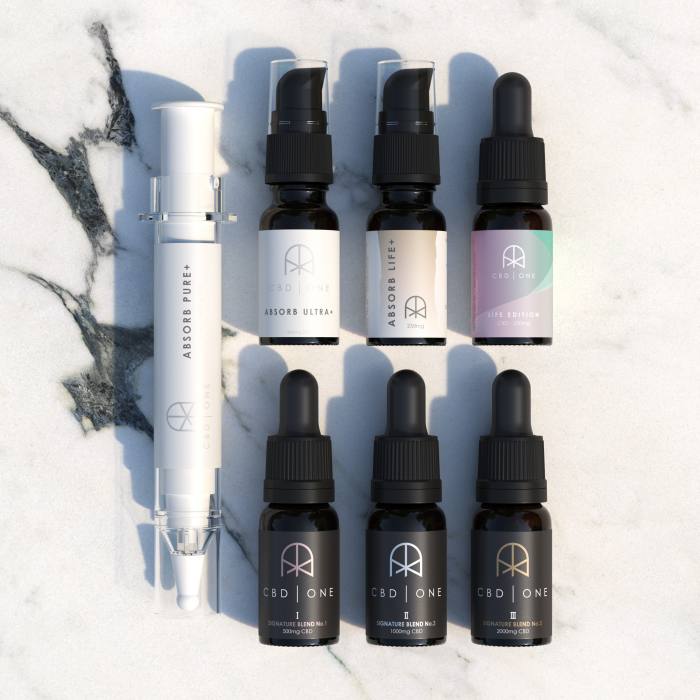
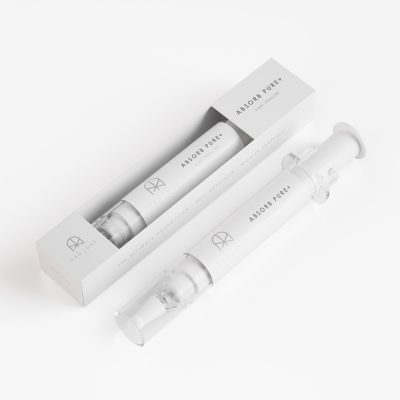
Bioavailability:?Bioavailability | 99% |
CBD content:?CBD content | 800mg | 1600mg | 4000mg |
Cannabinoid spectrum:?Cannabinoid spectrum | Full |
| Daily use: | Once daily |
Best for:?Best for | Powerful water-soluble option |
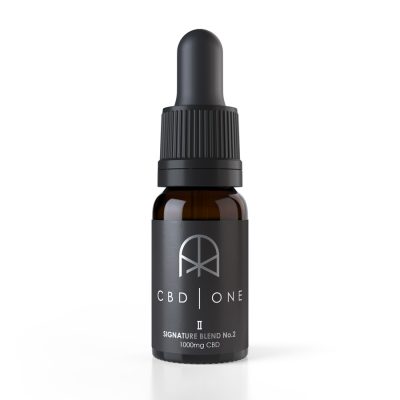
Bioavailability:?Bioavailability | 12 % |
CBD content:?CBD content | 1000mg | 2000mg | 5000mg |
Cannabinoid spectrum:?Cannabinoid spectrum | Full |
| Daily use: | 1-3 times |
Best for:?Best for | All round oil |
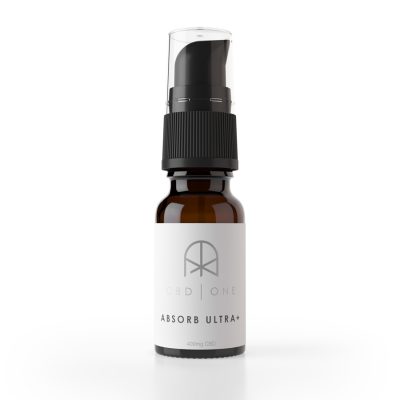
Bioavailability:?Bioavailability | 99% |
CBD content:?CBD content | 400mg | 800mg | 2000mg |
Cannabinoid spectrum:?Cannabinoid spectrum | Full |
| Daily use: | Once daily |
Best for:?Best for | Great all-rounder |
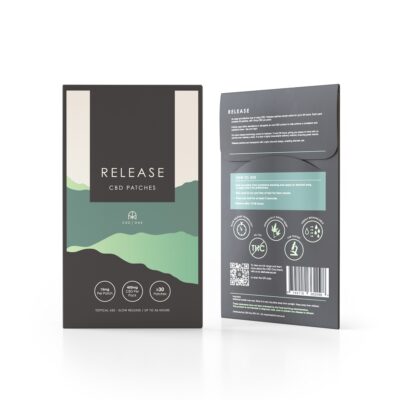
Bioavailability:?Bioavailability | 40%+ |
CBD Content:?CBD Content | 450mg | 900mg | 1350mg |
Cannabinoid spectrum:?Cannabinoid spectrum | Pure CBD |
| Daily use: | Once |
Best for:?Best for | Round the clock super-effective dosing |